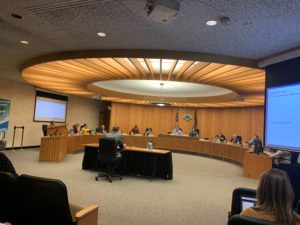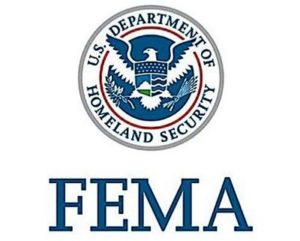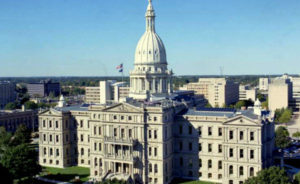Legislative Update 3-20-20
MAC COVID-19 Resources Page
MAC Q&A Document for State Leaders
 Special note from MAC
Special note from MAC
To all leaders and employees of Michigan’s 83 county governments, we at MAC, your association, extend our deepest appreciation and thanks for your service in this unprecedented crisis for our nation and world. Please do not hesitate to contact us at any time for assistance. We will do everything in our power to help you keep your communities and families safe.
Stephan Currie
Executive Director
 MAC convenes countywide elected officials to discuss COVID response and challenges
MAC convenes countywide elected officials to discuss COVID response and challenges
Earlier this week, MAC Executive Director Steve Currie and MAC President Veronica Klinefelt of Macomb County hosted a conference call with representatives from the organizations representing sheriffs, prosecutors, treasurers, clerks, register of deeds, administrators and local public health departments.
Megan Swain from the Michigan Association of Local Public Health gave an update on their response to the virus, the number of private labs online now and on the number of cases in the state. She also informed the group that she has daily calls between her organization, her members and the various state departments that interact with local public health departments. Her members are working to trace the spread of the virus, notifying people of potential exposure and the need for quarantine. They are still responsible for investigating other diseases and food borne illnesses.
MAC shared with the group our communication channel with the governor’s office and their request to have MAC field all county questions to minimize the number of individual calls to their office. Rest assured, MAC is in constant communication with the governor’s office and will get information out to the entire county family as soon as we get it. MAC also alerted the participants of our resources on our website that can be found here.
Many county departments have gone to a reduced staff, rotating work schedules and services by appointment only. The sheriffs have stopped all in-person visits to the jails, although most court operations are still functioning, excepting those hearings that can easily be postponed.
As far as elections are concerned, local governments are being asked to defer any May elections to August. If that is not possible, then absentee ballots will likely be the only way to vote in a May election.
The governor has issued Executive Order 2020-14 to provide a temporary extension of the deadline to redeem property for nonpayment of delinquent taxes from March 31 to May 29, 2020. Local units and counties will still face challenges when it comes to handling challenges to property assessments since a local board of review will likely be suspending their hearings.
MAC stands ready to assist our members and our entire county family during this state of emergency. For more information, contact Deena Bosworth at bosworth@micounties.org.
Navigating the new world of remote meetings
 MAC is consulting with a variety of experts on resources that counties can use to operate public board sessions that comply with the governor’s Executive Order modifying the Open Meetings Act.
MAC is consulting with a variety of experts on resources that counties can use to operate public board sessions that comply with the governor’s Executive Order modifying the Open Meetings Act.
We are aiming to provide lists, best practices and tips to members early next week.
Key legal points
- The EO expires on April 15 unless the Legislature votes to extend it.
- Compliance with the EO must include general public participation.
- Public participation must be 2-way – the public must be able to hear the public and officials.
- You can allow typed and read comments IN ADDITION to verbal comments, not in place of them.
- Closed sessions still allowed under OMA rules; it is recommended that you have a separate secure conference call line for those.
- Give advance notice – a recommended minimum of 18 hours.
- Place such notice on your homepage or via a prominent link on your homepage.
- Notices should list the reasons for electronic sessions and all details on how public can participate, including the disabled.
- Taping is allowed for the public for any reason; you can set rules on disruptions, but you can’t exclude people except for a breach of the peace.
- You are advised to do roll call votes on everything.
- You are advised to share agenda and board packets on website in advance.
- Be sure you do not use texts or emails among board members for sidebar communications.
- The EO prevails over any charter, ordinance or local rule.
- All recordkeeping provisions stay in effect under OMA.
Key technical points
Any solution must provide for:
- 2-way communication with public
- Access without registration
- Disabled participation (closed captioning, etc.)
- Toll-free or local phone lines if using calls
Zoom and GotoMeeting are seen as good options that would help local boards comply with the EO.
For more information, contact MAC at 517-372-5374.
Update on federal appropriations on coronavirus
 During a briefing call Thursday evening, NACo staff detailed the current activity in Washington on local funding on the coronavirus crisis:
During a briefing call Thursday evening, NACo staff detailed the current activity in Washington on local funding on the coronavirus crisis:
Third supplemental (CARES ACT)
A package possibly could be to president’s desk for signature by Sunday night (March 22).
A Senate plan released Thursday evening includes direct cash payments to certain individuals, small business loan relief and additional health care spending. More information to be found at this link.
NACo advised that all counties need to be pushing the message for continuing funding for our public health departments. Cost estimates are coming in regularly but keep sending them to NACo. We must have resources now AND be thinking about this fall and the fall of 2021.
NACo has provided a downloadable letter https://naco.sharefile.com/share/view/s6c093fe3fa14a47a you can customize and send to congressional leadership.
First supplemental
The first supplemental included $8.2 billion and a focus of $950 million for Local Public Health, which will go to the states and then to counties. Encourage your Local Public Health team to communicate with their counterparts.
Second supplemental
The second supplemental was signed on Wednesday (Family First Coronavirus Act). It includes:
- Free COVID testing, regardless of insurance status
- Nutrition assistance for food banks
- Unemployment assistance
- Medicaid contribution increase
- FMAP increase by 6.2%
NACo advised that members should be sure to read the second passed version since there were substantial changes from the first draft. NACo is asking HR directors and consultants to review because a patchwork of state laws and regulations related to this. The law mandates 10 weeks of paid leave, but that is limited only to workers caring for a child where schools and child care have shut down.
For updated information on national events, visit NACo’s page.
Communicating during a long crisis
 As the current situation with coronavirus points toward a longer disruption of normal activities, county leaders are advised to consider their terminology in reporting on changes to county services.
As the current situation with coronavirus points toward a longer disruption of normal activities, county leaders are advised to consider their terminology in reporting on changes to county services.
 FEMA details resources in call with county leaders
FEMA details resources in call with county leaders
FEMA held a call with county leaders this week to detail resources now becoming available for COVID-19 responses.
Among the key points:
- Local governments are eligible to submit reimbursements under Category B, emergency protective measures
- FEMA cannot duplicate assistance of other federal agencies (HHS/CDC)
- FEMA is working to streamline and expedite funding
- FEMA is working with its regional arms and states to process funds quickly (it had 223 requests in at the time of the call, with 55 from counties and 81 from cities/townships)
- States can assist counties to work in the FEMA grant system, if a county has not entered the portal before
- FEMA is working to provide grants training through the states (not through regional FEMA managers)
- FEMA also looking to implement direct processing for counties/cities but no timeline provided
- States are submitting questions and FEMA responding as soon as possible and putting info on FEMA.gov.
The call was recorded and is available online.
State approves two bills with supplemental funds for COVID response
 The Legislature has passed two measures to provide funds to combat the coronavirus:
The Legislature has passed two measures to provide funds to combat the coronavirus:
- Authorizes up to $50 million in Federal revenues for combating the respiratory virus COVID-19 to be appropriated to departments for State and Local preparedness and response activities.
- Requires a report on funding and activities to the appropriations committees, relevant subcommittees, the fiscal agencies, and the State Budget Office by June 30 and Sept. 30 of 2020.
- Directs $10 million to the Coronavirus public health emergency line be allocated to departments for critical State and local preparedness and response activities for the respiratory virus COVID-19.
- Directs that the activities may include monitoring, laboratory testing, contact tracing, infection control, and continuation of critical State government functions. Requires a report by departments receiving funding to the Legislature and State Budget Office by June 30 and Sept. 30, 2020, on activities and expenditures.
- Creates the Coronavirus Response Fund in the Department of Treasury.
- Allocates $15 million into the Fund.
- Allows funds to be spent upon appropriation or legislative transfer.
- Requires interest and earnings from the Fund be deposited in the General Fund.
- Directs that funds in the Coronavirus Response Fund not lapse to the General Fund at the end of the fiscal year.
- Includes $50 million GF/GP to expand capacity of critical health care providers for responding to the Coronavirus public health emergency.
- Authorizes $40 million GF/GP to be allocated to departments for preparedness and response activities for the Coronavirus public health emergency. Activities may include monitoring, laboratory testing, contact tracing, infection control, and continuation of critical state government functions. (This is in addition to the $10 million under SB 151.)
- Authorizes $35 million GF/GP to be deposited into the Coronavirus Response Fund to be available for subsequent appropriation as needs related to the coronavirus are identified. (This is in addition to the $15 million GF/GP authorized in SB 151 for the same purpose.)
 Virtual town hall set for March 26 on high-water issues
Virtual town hall set for March 26 on high-water issues
On March 26, state leaders will hold a virtual town hall on high-water issues in Michigan, the first in what is planned as a series.
The event will start at 6 p.m.; is designed for a public audience; and will cover water level basics and current forecasts, statewide high water impacts and resources for residents.
To register, click here.

March 23 webinar will focus on rural effects of COVID-19
The Centers for Disease Control and Prevention (CDC) will hold a webinar for rural stakeholders on March 23 at 1 p.m. Deputy Director for Infectious Diseases Dr. Jay Butler will share guidance with partners, public health practitioners, health care providers and others working to protect the health of rural communities. He will describe what the CDC knows at this point and what CDC is doing in response to this outbreak.
To register, click here.
Tips offered on using GIS to respond to COVID-19
ESRI will host a webinar on March 23 in which experts will show how counties can quickly deploy free GIS resources to prepare, mitigate and actively respond to COVID-19.
For free registration, click here.







